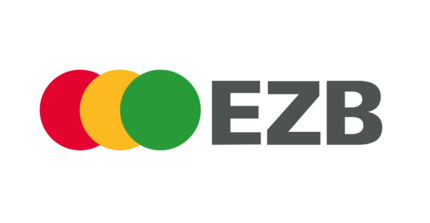Relationship between digital literacy and autonomy in virtual learning among Peruvian university students
DOI:
https://doi.org/10.5281/zenodo.16645899Keywords:
digital literacy, learning autonomy, higher education, virtual learning, digital competenciesAbstract
This study examines the correlation between the level of digital competence and the development of autonomy in the context of virtual learning among university students. A correlational design was used with a sample of 147 students from various academic disciplines. Data collection was carried out using the Digital Reading Skills for Virtual Learning (EAAV) instrument and an autonomy scale. The results showed a significant positive correlation (r = .68, p < .001) between both variables, indicating that higher levels of digital competence are associated with greater autonomy in virtual education. In addition, notable differences were found based on the participants' field of study and socioeconomic level. These findings are crucial for developing educational strategies that strengthen both digital skills and learning autonomy among university students in virtual environments.
Downloads
References
Adedoyin, O. B., & Soykan, E. (2020). COVID-19 Pandemic and Online Learning: The Challenges and Opportunities. Interactive Learning Environment. https://doi.org/10.1080/10494820.2020.1813180
Barnard, L., Lan, W. Y., To, Y. M., Paton, V. O., & Lai, S. L. (2009). [Estudio sobre autonomía en el aprendizaje virtual]
Broadbent, J., & Poon, W. L. (2015). Self-regulated learning strategies & academic achievement in online higher education learning environments: A systematic review. The Internet and Higher Education, 27, 1-13. http://dx.doi.org/10.1016/j.iheduc.2015.04.007
Buckingham, D. (2015). La evolución de la educación mediática en Reino Unido: algunas lecciones de la historia. Revista Interuniversitaria de Formación del Profesorado, 29 (1), 77-88
Carretero, S., Vuorikari, R., & Punie, Y. (2017). The Digital Competence Framework for Citizens. Luxembourg: Publications Office of the European Union
Castañeda, L., Esteve, F., & Adell, J. (2018). ¿Por qué es necesario repensar la competencia docente para el mundo digital?. Revista de Educación a Distancia (RED), 18(56). Recuperado a partir de https://revistas.um.es/red/article/view/321581
Gallardo-Echenique, E., Marqués-Molías, L., Bullen, M., & Strijbos, J. W. (2015). Let's talk about digital learners in the digital era. International Review of Research in Open and Distance Learning, 16 (3). https://doi.org/10.19173/irrodl.v16i3.2196
Gilster, P. (1997). Alfabetización digital. Wiley.
Gutiérrez-Castillo, J., Cabero-Almenara, J. y Estrada-Vidal, L. (2017). Diseño y validación de un instrumento de evaluación de la competencia digital del estudiante universitario. Revista Espacios, 38(10), 16. https://bit.ly/3YYXvD5
Holec, H. (1981). Autonomy and Foreign Language Learning. Oxford/New York: Pergamon Press.
Knowles, M. (1975). Aprendizaje autodirigido: Una guía para estudiantes y profesores. Chicago, IL: Follett Publishing Company.
Lankshear, C. & Knobel, M. (2008): Nuevos alfabetismos. Su práctica cotidiana y el aprendizaje en el aula (2ª ed.). Madrid: MEPSYD
Lee, K., & Choi, H. (2017). Differentiable artificial reverberation. https://doi.org/10.1109/TASLP.2022.3193298
Little, D. (2007). Language Learner Autonomy: Some Fundamental Considerations Revisited. Innovation in Language Learning and Teaching, 1(1), 14–29. https://doi.org/10.2167/illt040.0
Martínez, J., & López, R. (2019). Currículo: un análisis desde un enfoque socioformativo. https://es.scribd.com/document/548433984/Martinez-J-E-Tobon-y-Lopez-2019
Ng, W. (2012). Can We Teach Digital Natives Digital Literacy? Computers and Education, 59, 1065-1078. https://doi.org/10.1016/j.compedu.2012.04.016
Sharpe, R., & Beetham, H. (2010). Rethinking learning for a digital age: how learners shape their experiences. Publisher: Routledge
Sparks, J. R., Katz, I. R., & Beile, P. M. (2016). Assessing Digital Information Literacy in Higher Education: A Review of Existing Frameworks and Assessments with Recommendations for Next-Generation Assessment. ETS Research Report, 16 (32). https://doi.org/10.1002/ets2.12118
Tang, C. M., & Chaw, L. Y. (2016). Digital Literacy: A Prerequisite for Effective Learning in a Blended Learning Environment. The Electronic Journal of e‐Learning, 14 (1), 54‐65.
Waycott, J., Bennett, S., Kennedy, G., Dalgarno, B., & Gray, K. (2010). Digital divides? Student and staff perceptions of information and communication technologies. Computers & Education, 54(4), 1202–1211. https://doi.org/10.1016/j.compedu.2009.11.006
Zimmerman, B. J., & Schunk, D. H. (2011). Self-Regulated Learning and Performance. In B. J. Zimmerman, & D. H. Schunk (Eds.), Handbook of Self-Regulation of Learning and Performance (pp. 1-12). New York: Routledge.
Published
How to Cite
Issue
Section
License
Copyright (c) 2025 Arbitrated Journal of Contemporary Education

This work is licensed under a Creative Commons Attribution-NonCommercial-NoDerivatives 4.0 International License.
















